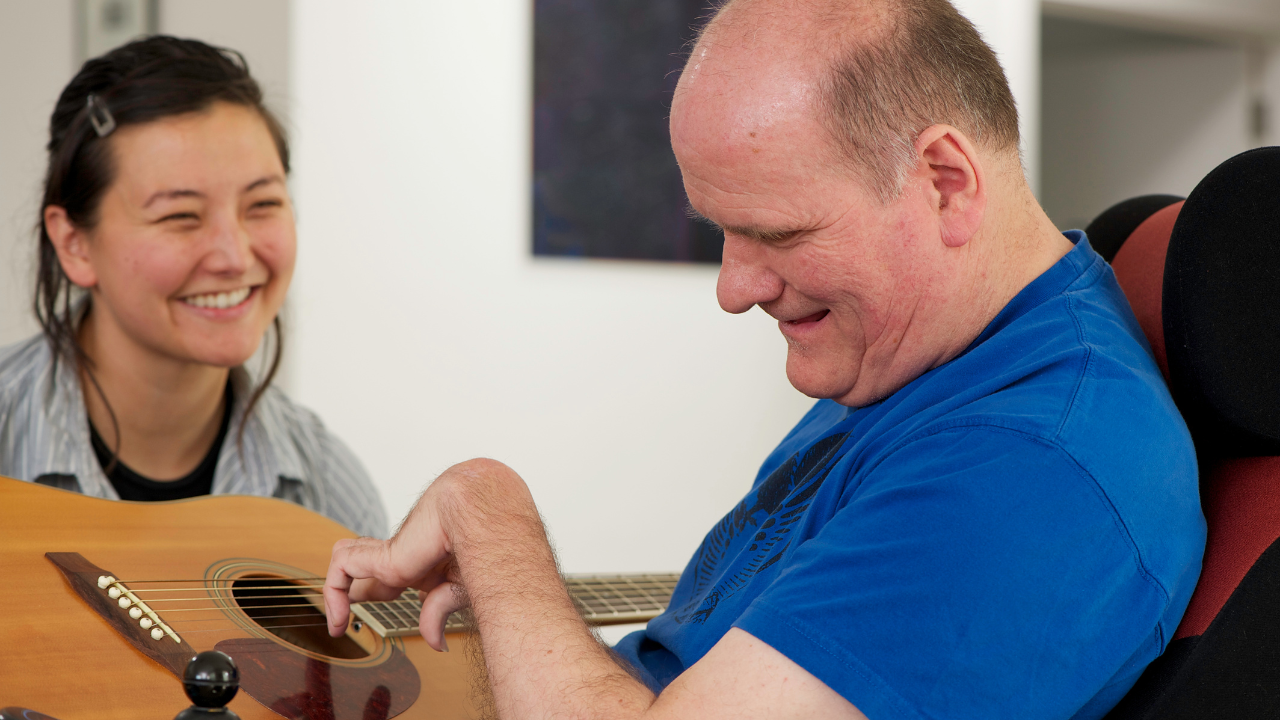Over 7 million individuals in the U.S. live with one or more developmental disabilities. Let's look deeper into developmental disabilities and explore what it often means to live with one. The answer can be highly personal.
What is a “Developmental Disability?”
According to the Centers for Disease Control and Prevention (CDC), “developmental disability” is an umbrella term. It’s used to describe a group of conditions associated with impairments in learning, language, behavior, and physical areas. These conditions typically impact daily functioning and last throughout an individual’s entire life.
What makes developmental disabilities distinct is when they emerge: the “developmental period,” characterized by milestones like infancy, toddlerhood, etc. Signs of developmental disability usually present themselves during the first few years of an individual’s life when “normal” milestones are delayed or fail to occur.
The causes of developmental disabilities vary. Genetic or chromosome abnormalities are common sources of developmental delays. Preterm births and certain infections during pregnancy may also lead to these conditions. Regardless of their cause or manifestation, developmental disabilities can be unique to each person they impact.
What separates different types of developmental disabilities?
Because a developmental disability can relate to a wide profile of conditions that affect daily life, many subcategories exist within it. Challenges may be physical, intellectual, behavioral, or a combination. Blindness may be considered a developmental disability, just as Down syndrome might.
What often receives the most attention are intellectual and developmental disabilities (IDDs), which are usually present at birth. Intellectual disabilities, like developmental disabilities, can significantly affect an individual’s daily life, including their:
- Ability to learn, reason, solve, etc.
- Behavioral skills, including socialization and communication
- Emotional development
- Everyday life skills
The term “IDD” may also be used to describe situations where intellectual disability and others are present simultaneously.
Conditions Associated with Developmental Disabilities
Many conditions can lead to developmental delays or challenges. Others might emerge as a result of these delays. Common conditions associated with developmental disabilities include the following:
- Autism spectrum disorders (ASDs)
- Attention-deficit/hyperactivity disorder (ADHD)
- Cerebral palsy
- Fragile X syndrome
- Intellectual disabilities (ex: Down syndrome)
- Language and speech disorders
- Learning disorders (ex: dyslexia)
- Tourette syndrome
Personal Challenges & Unique Experiences
Each individual with one or more developmental disabilities experiences their own challenges and strengths. Many forms of disability exist on a spectrum – no two cases of the same condition will manifest identically.
Still, there are some common challenges that individuals with developmental disabilities may face. These challenges – in addition to those directly related to the disability itself – can pose a threat to a person’s individuality, independence, and quality of life.
- Challenges at Work, School, Etc. Developmental disabilities, by definition, impact development. This often leads to difficulties in many areas of life, including work and education. Struggles can lead to real-world consequences, particularly for those who are unaware of their disability or how to seek support for it.
- Lack of Autonomy. Counting on others for support and necessary resources can, in some cases, come at a cost. Families, caregivers, teachers, and even health professionals often make decisions for individuals with disabilities. While families and loved ones can be important advocates and key players of a supportive team, it’s also important that those with disabilities can and should make decisions for themselves whenever possible.
- Social Stigma & Isolation. Feeling alone or misunderstood is never fun. But for individuals with disabilities, these feelings can be all too common.
Finding Support
If you or a loved one shows signs of a potential developmental disability, it’s best to speak with your healthcare provider. There are many resources available for support, but learning more about your needs is the first step.
In California, one such resource is your local Regional Center. These are hubs for information, services, and insight that can help you pursue your goals. California’s Self-Determination Program (SDP) is another option that you can utilize to access the care and opportunities you need to thrive.
At NeuroNav, we’re here to help you navigate SDP and other disability resources confidently. Browse our services to learn more, or schedule a free consultation to start a conversation.


.png)
.jpg)
.png)